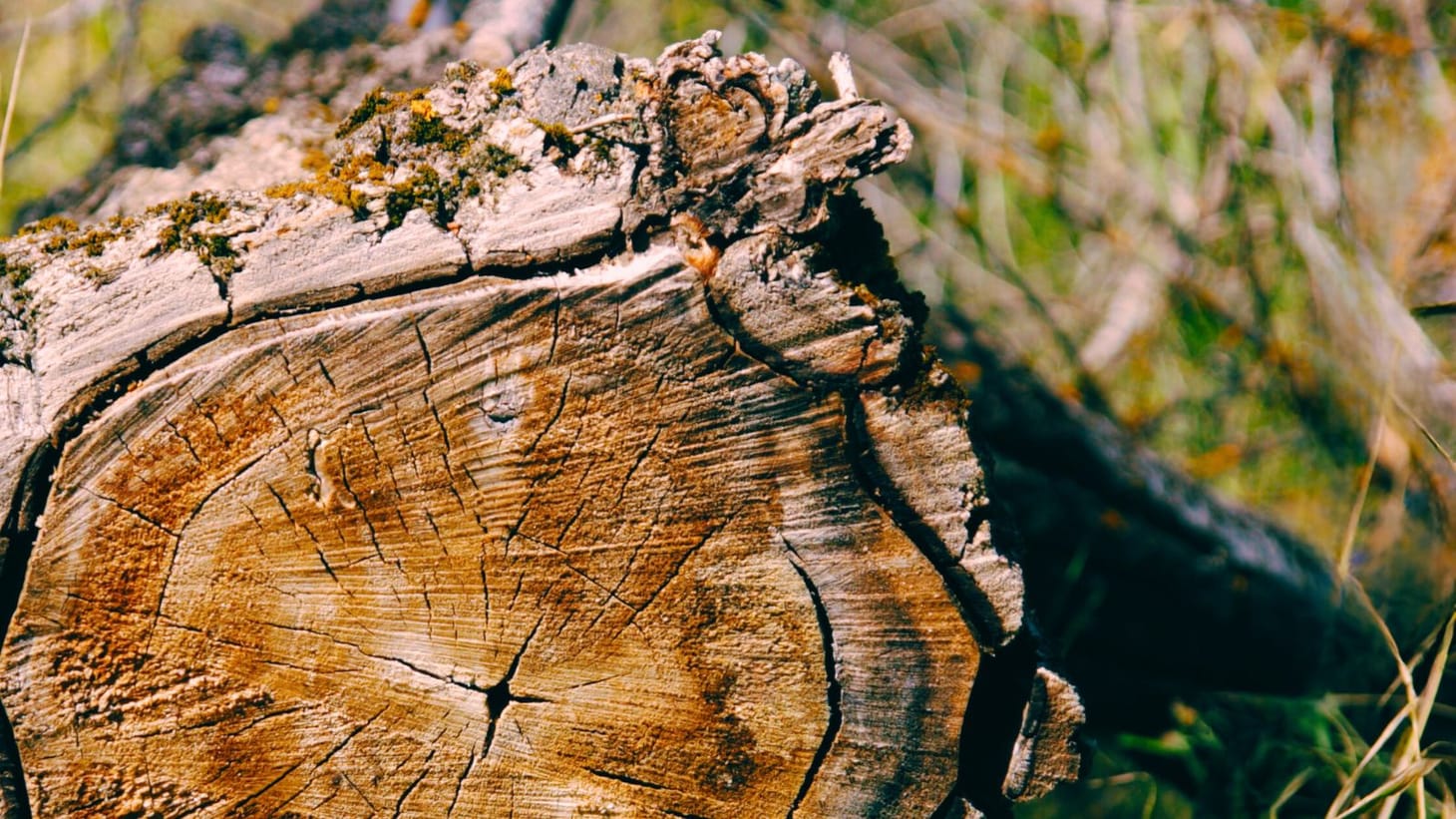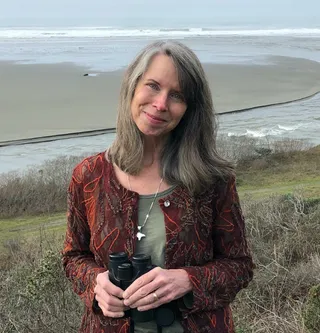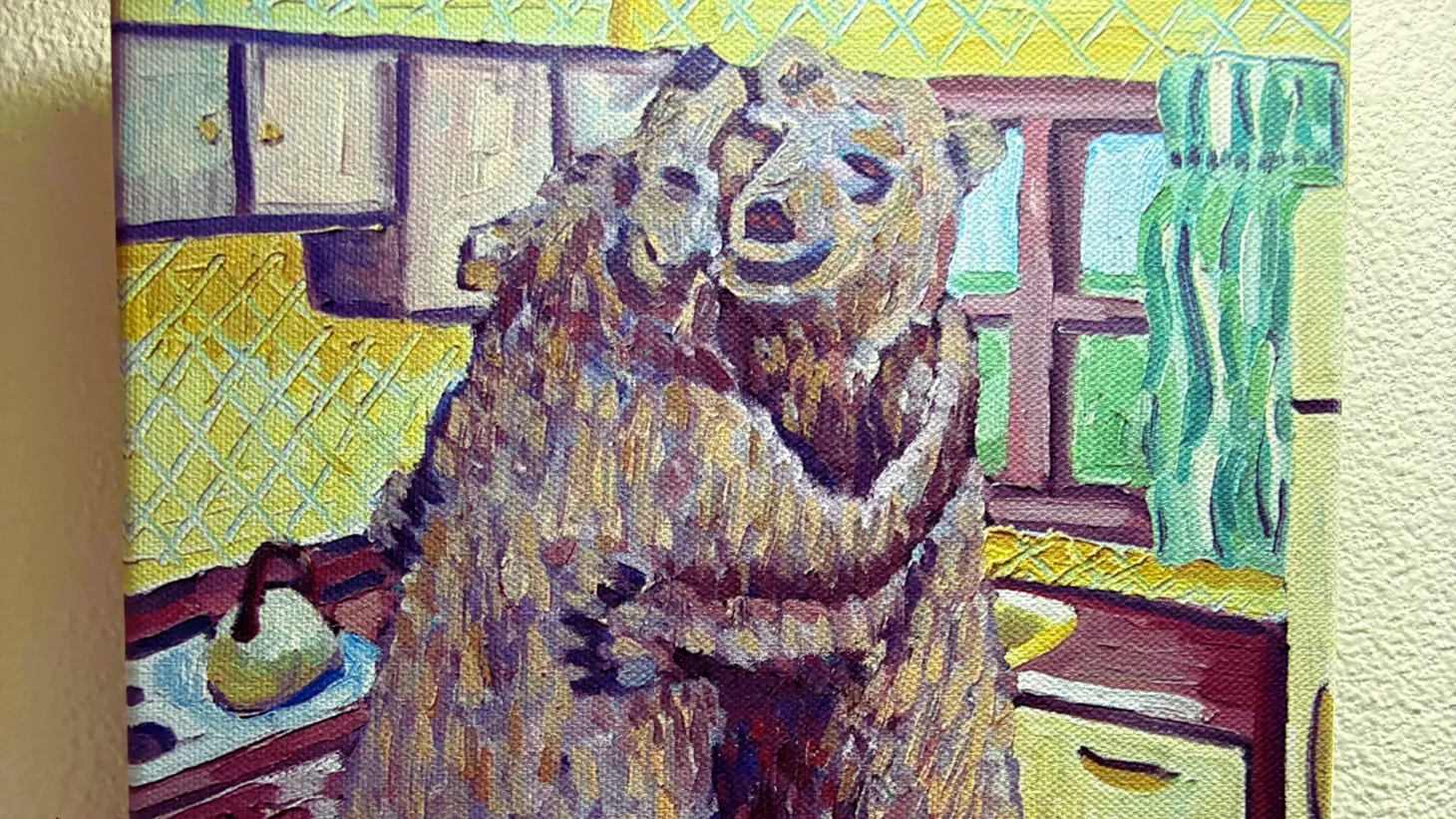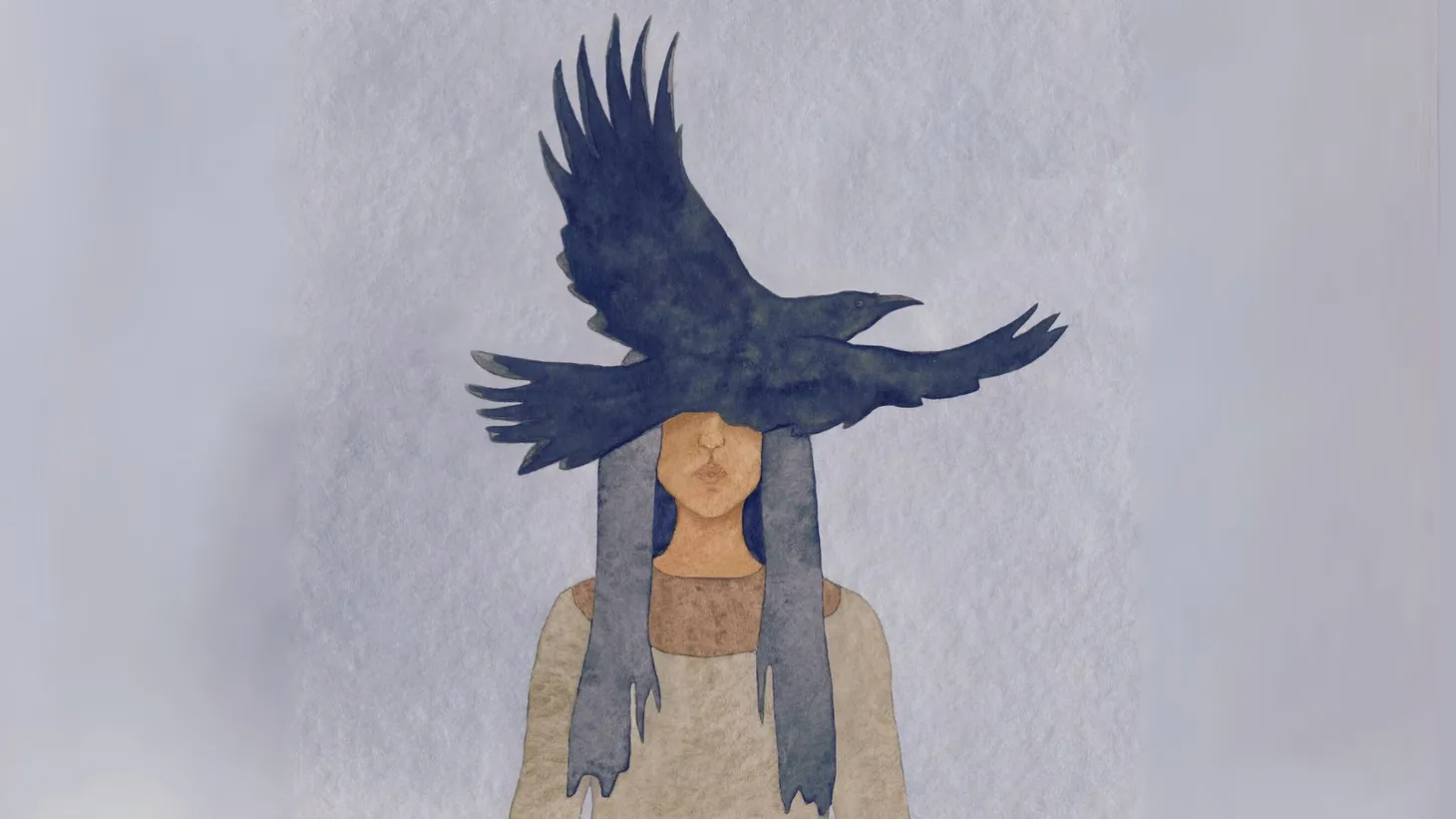Where can you find a little good news?
A mindshift story about what it means to be strong in the midst of loss

I’ve learned to read wood, understand the pieces waiting to be burned, the way the grain flows, the heft or the lightness as I lift each log in my hands. Some will be hard to cleave, others falling open easy as a book.
To split wood into smaller segments becomes a story. Several stories.
What are they about? I’m talking about firewood, yes, and I’m talking about what it means to be fully you for as long as there is a you.
First, there are the tales of the once-were trees, which I can only imagine from the chunks.
Where did you live, Oak, as you stretched your arms wider and wider, balanced on your roots in your gnarled tree pose? What did you witness, Madrone, place-based for years, each summer shedding your cinnamon bark, revealing your vibrant green body? Doug fir, my old easy-going friend, how are you? And you, Chinquapin, did you bring that abundant sun from the foothills here, is that one way you will warm us?
As I raise the sledgehammer over and beyond my head, my eyes focus where its head should land, reminding myself to let the metal weight of it do the work. If you try too hard to swing that handle down, you hurt yourself. Yet, this act of breaking wood apart is not passive.
If you’ve ever explored a translation of the Tao Te Ching—an ancient Chinese, poetic text, now referred to as the Dao De Jing—you might know the concept of “effortless action,” maybe even recall these lines from Chapter 43:
"The softest thing in the universe
overcomes the hardest thing in the universe."
— from Tao Te Ching, by Lao Tsu, translated by Gia-Fu Feng & Jane English
That’s the story I want to tell you. It’s about a relationship, between a smallish woman and heavy hammer, drawn together in a task.
It’s about fear and strength and how you learn a strange dance out of necessity. How to love a daily rhythm you could never have imagined without some loss, some sloughing away of life, like the bark of madrone falling away, revealing you to you.

As my husband’s health took away his ability to do not only what he loved but also what needed to be done—such a slow, unwelcomed letting go—our days began unfolding around two questions.
When you pare life down to its barest metaphorical bones, who are you?
What is the simplest form of joy to keep you going?
When I took over the the making of firewood, I had to release the fear of my own strength. Who knew?
At first, I stayed away from sledgehammers, wedges, and the round, cast-iron kindling cracker with the curved blade inside, facing up at me.
Instead, I used a safer device. “The girl splitter,” my husband laughed, when Dan our UPS man delivered it, though it was actually a replacement for one I’d used for more than 20 years, whenever I was alone. He’d simply forgotten, and not all memories matter.
Almost as tall as me, the tool involves a simple sliding weight on a long handle that you fling downward onto a wedge of red, pointed metal at the end, forcing it into a log. I still use it for large pieces, though it’s a slow, arduous process for parting wood.
Each time I reach for “the girl splitter,” I smile, thinking, No, no splitting of girls today. Just this girl splitting open her tree-self. What can I say? Poets speak poet to themselves.
With time and tiredness and wanting efficiency, I became braver.
I began grabbing the sledge, pulling out the hefty kindling cracker, learning to blend a fleshy body’s living strength with a hammer’s dead weight, “the softest thing” leveraging “the hardest thing.”
Many times the hammer missed. Many times the crunch and pop of shoulder, later sore, as I confused muscled intention with rhythmic ease, power with strength.
Do you know the difference?
Power is about force and speed, with an element of control, of overcoming something beyond and external to you.
Strength is about capability and endurance, with an element of resilience, of growing something within and innate to you.

Late afternoon after late afternoon, I’d tried to overpower lengths of log, gripping tight the shaft of a sledgehammer.
Splitting firewood seemed a problem to be solved, big pieces made smaller, the smaller made into kindling.
Why do we do that?
Why do view these daily acts as a hurdle rather than a gift? Trees giving themselves to me, so I can give warmth to my husband and cats. My body given healthy movement. My mind given a bit of peace.
Ultimately wisdom appeared—the thought tribe, conversing.
You’re flinching. You’re not letting your strength start the swing. You’re holding back the hammer’s arcing momentum. Why are you afraid to pull up fully and let the hammer freely find its way down?
Ah! This splitting of firewood is a dance not a problem. I don’t need to lead with force, only to let go into a rhythm, the animal body with inanimate tool.
The music? It’s a thudding then a ringing when the wood splits cleanly, metal driven through bark, burl, knots, and grain, meeting other metal. Ting!
Why are you afraid? That thought, so surprising.
Still, I was afraid to pull up that heavy hammer with my full strength, then with ease, to let the hammer come down hard, not holding it back or coercing it, just holding on, gently guiding the trajectory, trusting the tool, and also, me.
Fear, really? Yes, it can be illusive.
Sometimes it’s easier to see fear within others than within yourself. The teacher can be tree limbs or the person in front of you.
I’ve listened to and intuited fear in the voices of friends, family, and private clients wrestling with grief, trauma, anxiety, regret, isolation, disillusionment, and a lost sense of purpose and identity.
Fear is found in the unknown and unknowable.
Fear sprouts in desolation and disconnection.
The most visceral fear anchors to survival, dreading inevitable decline and death.
Then there’s the most insidious fear. It shows up particularly in our developed culture, in our overwhelmed minds flooded with competing voices.
Unless you’re living off-grid, as many as 4,000-10,000 images may flash across some screen in your hand or the telly, every day and unconsciously, creating a subliminal world of conflict and self-doubt.
At heart, especially for women (thought nearly universal), fear is seeded in a feeling of not-enough-ness, an impulse to hide our uniquely quirky imperfections, and the self-imposed boundary known as, “I can’t.”
Then there’s the taught expectation to be good, to put others first, but oh, don’t be too ambitious, too bright, too strong.
Why not own, and free, your strength? That was the tiny voice I heard as I struggled with hammer and log.
Why not own, and free, your strength? Now, I am asking you.
If you’ve ever grieved anything, perhaps you’ve felt further wounded by the advice to “be strong.” It suggests that sorrow, yearning, shattered ideals, or grief itself is a weakness. No, no, no, no.
May I offer a mindshift?
Grief—which is not one thing but a kaleidoscope of thoughts, emotions, and physical feelings—is one embodiment of strength.
To grieve is to be strong. To fully experience your unique spectrum of loss and longing, then let it illuminate the path toward some new season of your life, is to grow stronger.

Earlier this week, as I headed out to the woodshed to gather wood for our nightly fire, I was listening to a new artist in my ecosystem by the curious name, Shaboozey. Specifically his song, “Good News,” was streaming into my ears.
The song is poignant, mournful, and surely speaks to so many right now who need “a little good news.” I stood under a redwood, swaying to his voice, the various guitars strumming and sliding, a simple and constant beat pulsing through it all.
As I listened, I felt heard.
Certain lines lingered with me, “Nobody knows what I'm goin' through.”
Ah, isn’t that true for you, for me, for each of us? We hold our woes down deep, the way our bones carry their marrow.
“Wish someone told me/Livin' this life would be lonely.” I had to smile at that one. He’s still so young.
No one needs to tell you life can be lonely. No, like rain, it will make itself known. Loneliness is baked into the human equation. What I will tell you, though, is life doesn’t have to be lonely, or stormy, most of the time.
The refrain of the song, “All I really need is a little good news,” has stayed with me as I’ve moved through the last few days.
Where can we find a little good news?
I’m biased, but it’s way harder to find it only ‘out there.’ Easier to unearth some good news ‘in here,’ that is, as a thread or vein of your inner world responding to your outer world.
The inner is that “softest thing.” The outer, “the hardest.”

Last evening, after stepping over limbs and debris from recent storms still strewn at the threshold of the shed, I paused before reaching for the sledge. Time to shift branches, twigs, and clumps of wet redwood needles out of my path.
My hands mucky-wet, I was wiping them on my jeans, remembering my work gloves, when a small, speckled salamander, exposed by my earth-keeping, clambered away, slick and shimmering, into the undergrowth nearby.
The third little salamander showing herself to me in as many days, I was so happy. It’s a tough time for salamanders, so many species collapsing. A surge of emotion took over, my cheeks hot, my heart ticking up a bit.
I squatted down, looking at the duff, the damp-black soil, as if witnessing a trick and trying to logic through the magic.
Pulling earbuds and iPhone from a pocket, I played Shaboozey’s song. Every time he sang, “All I really need is a little good news,” I whisper-sang back to him, “it’s here, look, it’s right here.”
Though I couldn’t see her, safe in her shadows and moss, I knew the salamander was still with me. What do you think she made of that moment?
A clip for you …
If you’d like to listen to Shaboozey’s “Good News,” you’ll find a video clip below.
As for his curious name, Shaboozey, it originated from the mispronunciation, by his high school football coach, of his last name, Chibueze. It’s an Igbo word (Igbo is a primary language of West Africa), meaning "God is king."
The Wild Now
Get insights & stories for rediscovering life in the wild now.




